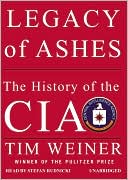Update from Baghdad
It's cautious optimism from Gen. Petraeus at his first press conference on the operational effectiveness of "the surge."
According to his opening remarks:
While too early to discern significant trends, there have been a few encouraging signs. Sectarian killings, for example, have been lower in Baghdad over the past several weeks than in the previous month. There also appears to have been less sectarian displacement in the past month; in fact, some families have returned to the neighborhoods from which they were displaced, although in small numbers so far. Iraqi and coalition forces have uncovered stockpiles of explosively formed penetrators in Diyala province and in Baghdad, with 96 weapons caches found in the Multinational Division Baghdad area alone in the past two weeks. Additionally, two major car bomb factories have been destroyed on the outskirts of Baghdad. Hundreds of extremists have been captured or killed, including some mid-level members of al Qaeda Iraq and other extremist groups. And we have destroyed several trucks equipped with heavy machine guns used for engaging our aircraft.
Beyond Baghdad, moreover, a number of tribes in Anbar province have in recent months finally said, "enough," and begun to link arms against extremist operatives who have killed their sheikhs and sought to poison their young people's minds.
Meanwhile, Iraqi leaders have moved forward on some important pieces of legislation, most notably the draft national hydrocarbon law, which treats Iraq's petroleum revenues as a national asset to be shared equitably among Iraq's provinces and regions. The government of Iraq has made several budgetary advances in recent weeks as well, to include earmarking $7.3 billion for security-related expenses and over $10 billion for capital investment in vital infrastructure, pushing 2.4 billion reconstruction dollars directly to the provincial governments, and conducting the conference yesterday led by the deputy prime minister, Barham Salih, on spending that money appropriately for the Iraqi people.
At the same time, tragically, there have been violent, sensational attacks. Schools, health clinics and marketplaces have all been attacked. Car bombs have targeted hundreds of innocent Iraqis, including dozens of Sunni Arabs leaving a mosque in Al Anbar province. Suicide vest bombers killed over three dozen students at Mustansiriyah University in Baghdad. Fourteen Iraqi policemen were killed execution-style while bound and blindfolded last week. The Iraqi vice president was wounded by an assassination attempt, though thankfully and impressively, he remains undaunted and is already back on the job. And in recent days, Shi'a pilgrims were killed in a barbaric manner by thugs with no soul, but the pilgrims continue to march.
Full Transcript.
According to his opening remarks:
While too early to discern significant trends, there have been a few encouraging signs. Sectarian killings, for example, have been lower in Baghdad over the past several weeks than in the previous month. There also appears to have been less sectarian displacement in the past month; in fact, some families have returned to the neighborhoods from which they were displaced, although in small numbers so far. Iraqi and coalition forces have uncovered stockpiles of explosively formed penetrators in Diyala province and in Baghdad, with 96 weapons caches found in the Multinational Division Baghdad area alone in the past two weeks. Additionally, two major car bomb factories have been destroyed on the outskirts of Baghdad. Hundreds of extremists have been captured or killed, including some mid-level members of al Qaeda Iraq and other extremist groups. And we have destroyed several trucks equipped with heavy machine guns used for engaging our aircraft.
Beyond Baghdad, moreover, a number of tribes in Anbar province have in recent months finally said, "enough," and begun to link arms against extremist operatives who have killed their sheikhs and sought to poison their young people's minds.
Meanwhile, Iraqi leaders have moved forward on some important pieces of legislation, most notably the draft national hydrocarbon law, which treats Iraq's petroleum revenues as a national asset to be shared equitably among Iraq's provinces and regions. The government of Iraq has made several budgetary advances in recent weeks as well, to include earmarking $7.3 billion for security-related expenses and over $10 billion for capital investment in vital infrastructure, pushing 2.4 billion reconstruction dollars directly to the provincial governments, and conducting the conference yesterday led by the deputy prime minister, Barham Salih, on spending that money appropriately for the Iraqi people.
At the same time, tragically, there have been violent, sensational attacks. Schools, health clinics and marketplaces have all been attacked. Car bombs have targeted hundreds of innocent Iraqis, including dozens of Sunni Arabs leaving a mosque in Al Anbar province. Suicide vest bombers killed over three dozen students at Mustansiriyah University in Baghdad. Fourteen Iraqi policemen were killed execution-style while bound and blindfolded last week. The Iraqi vice president was wounded by an assassination attempt, though thankfully and impressively, he remains undaunted and is already back on the job. And in recent days, Shi'a pilgrims were killed in a barbaric manner by thugs with no soul, but the pilgrims continue to march.
Full Transcript.


